Lebanon celebrates art amid crisis
-
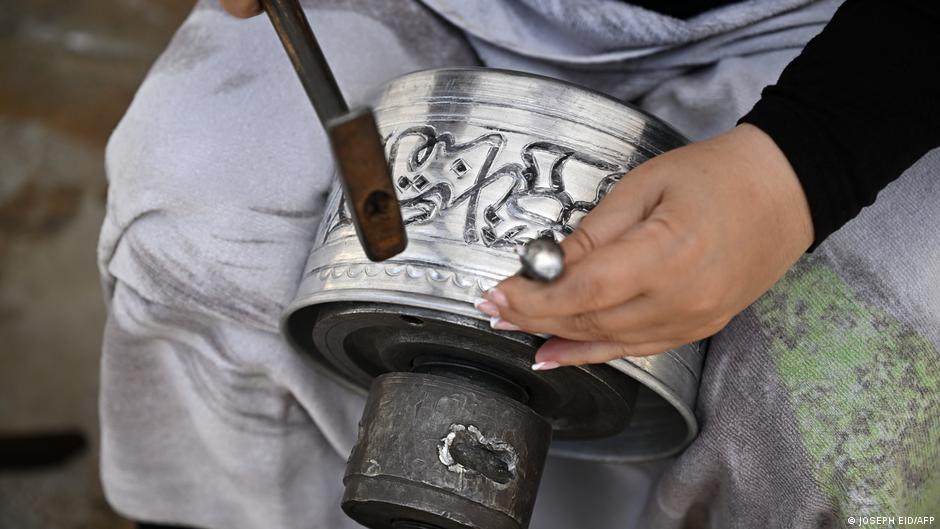
(image: JOSEPH EID / AFP) -
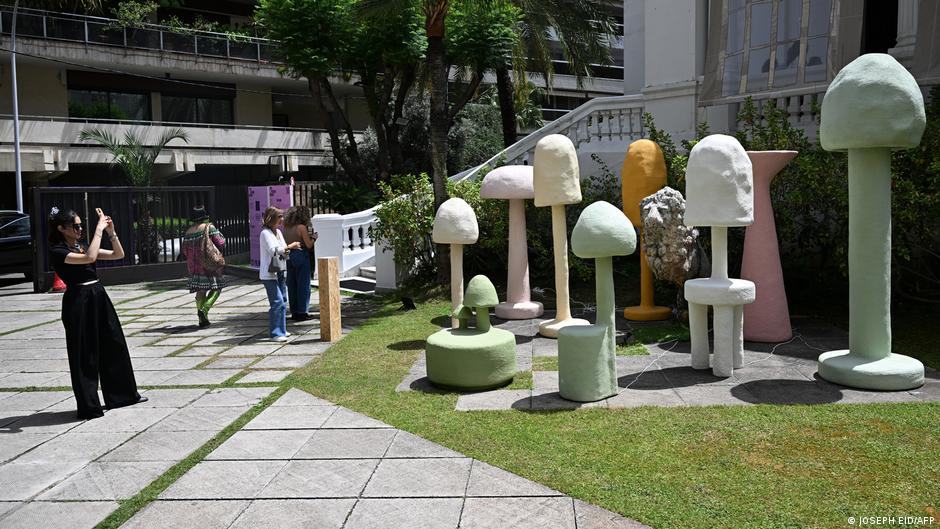
City full of design: Lebanon has been in an economic crisis for more than four years. Many people have lost their jobs and scores have left the country. Art and culture have been moved to the back burner. Yet, in late May, the art and design expo "We Design Beirut" returned, allowing artists to show their work despite the ongoing crisis (image: JOSEPH EID / AFP) -
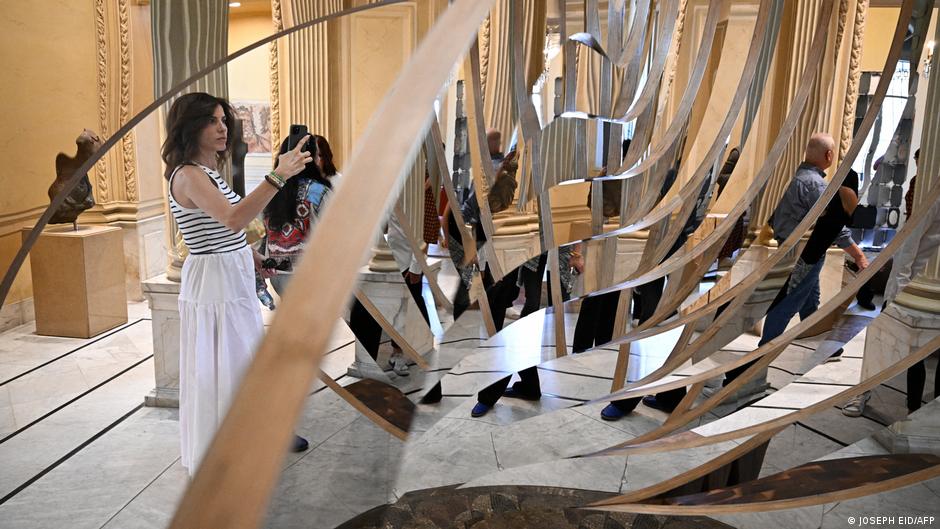
Uniting national heritage and modernity: first organised in 2010, the annual expo was put on hold in 2019 after the Lebanese economy crashed – a crisis the World Bank referred to as one of the worst in recent history. The newly revamped exposition highlights how Lebanese design unites national heritage with modernity. One such example is this mirror installation (image: JOSEPH EID / AFP) -
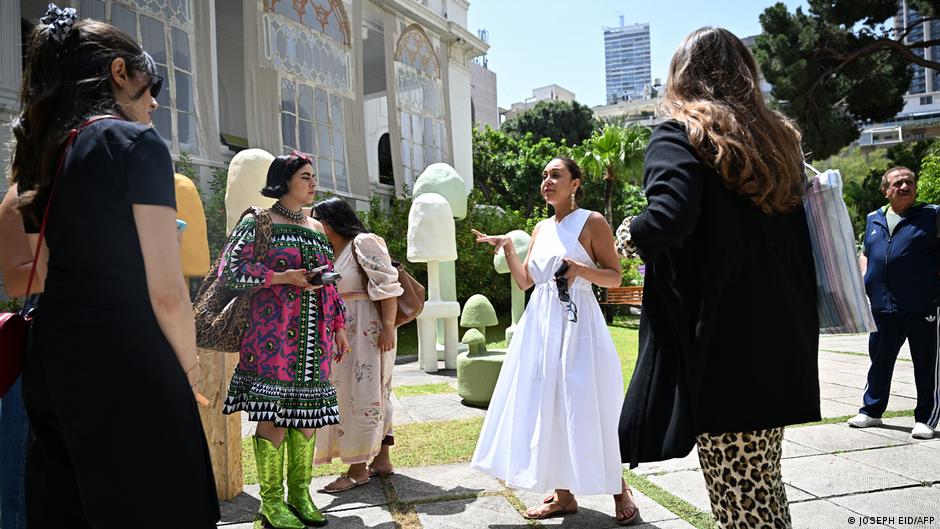
Highlighting diversity: over four days, works by more than 150 designers were displayed in multiple locations in the city. Mariana Wehbe (centre, talking to visitors), who organised the expo alongside industrial designer Samer Alameen, said the expo's goal was "to showcase the diversity of Lebanese design despite the country's difficulties" (image: JOSEPH EID / AFP) -
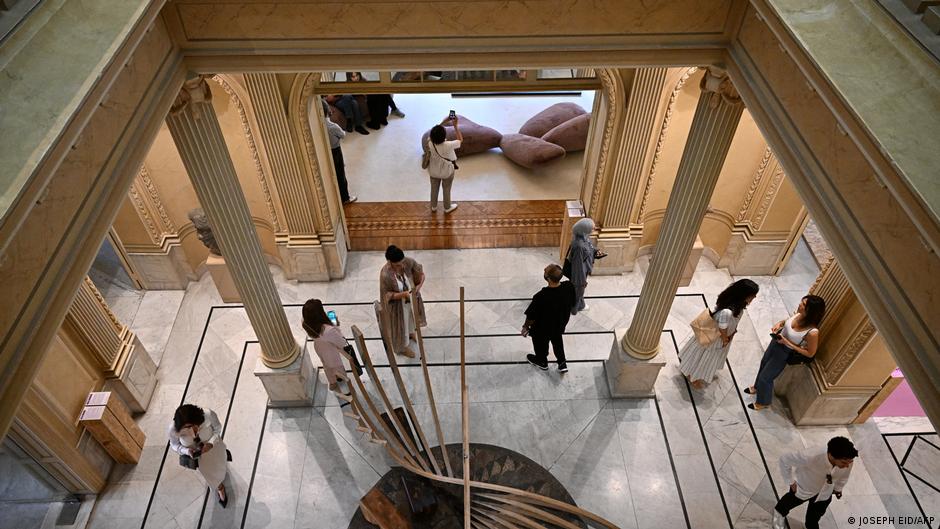
Focus on sustainability: on show were decorative objects and furniture, all designed in Lebanon. Design students also contributed to the expo, many choosing to focus on sustainability with their works (image: JOSEPH EID / AFP) -
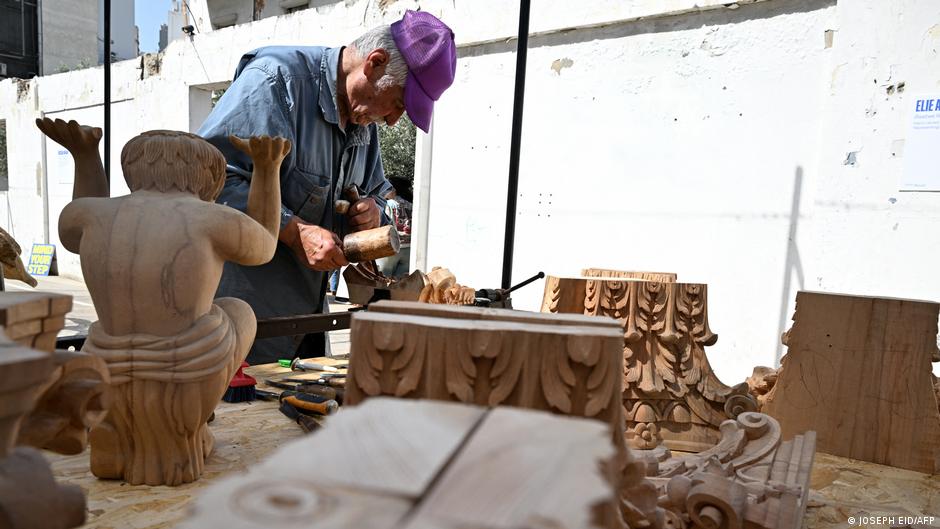
Civic engagement through art: the importance of private initiatives became clear after the port explosion in August 2020, which destroyed many Beirut neighbourhoods and killed more than 200 people, as often residents could not rely on the state for help. In the days following the blast, expo co-organiser Wehbe founded the organisation Bebw'Shebbek, which repaired doors and windows of damaged houses and businesses (image: JOSEPH EID / AFP) -
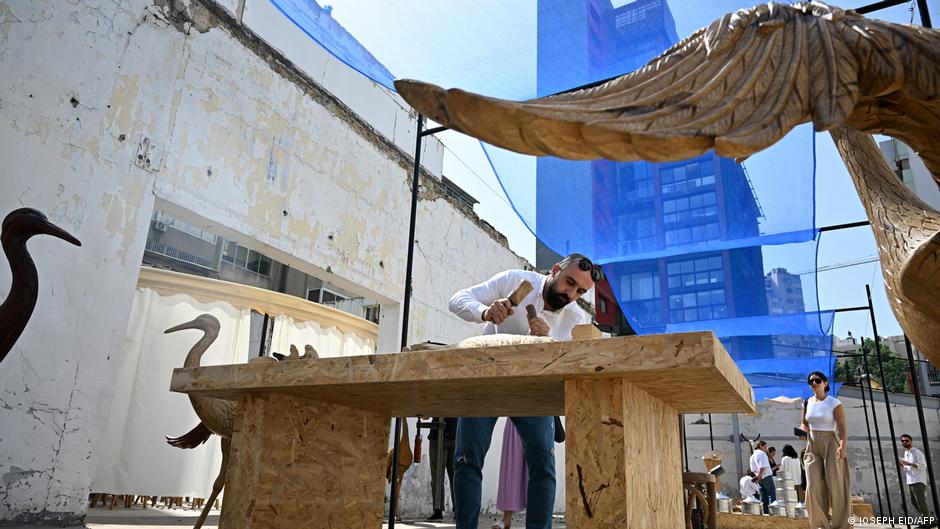
Preserving traditional crafts: many Lebanese craftsmen and women lost their jobs over the past few years, as the designers they had worked with moved abroad. Many workshops were damaged in the explosion and even now materials are often lacking. People are concerned artisan trades could die out – that's one reason why craftspeople were specifically invited to take part in the expo (image: JOSEPH EID / AFP) -
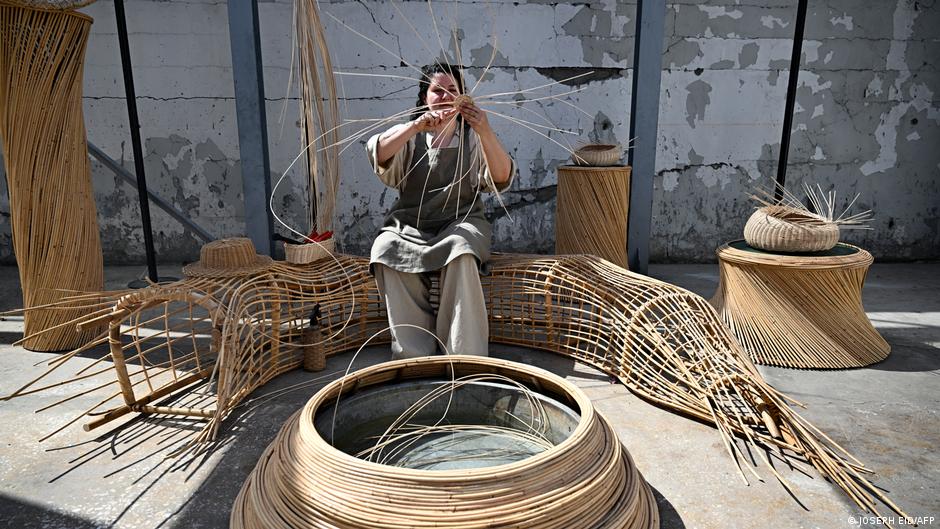
Giving rattan a modern look: one such craftswoman is Dima Stephan, who was taught to make traditional Lebanese chairs by artisans. Stephan adds her own modern touch to the trade, which used to be dominated by men (image: JOSEPH EID / AFP) -
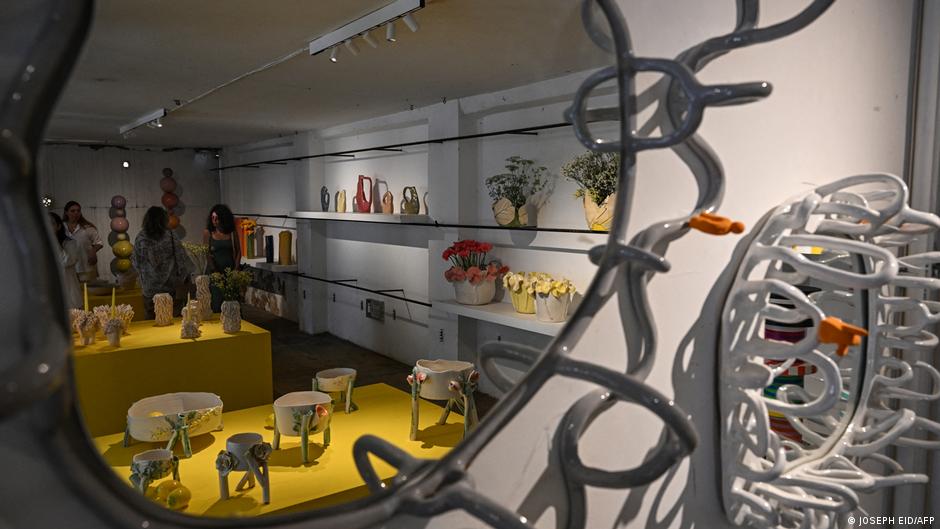
Art from different materials: the expo featured not only wood carvings and ceramics, but also artwork made of recycled materials – a noteworthy choice for a country known for its trash crises (image: JOSEPH EID / AFP) -
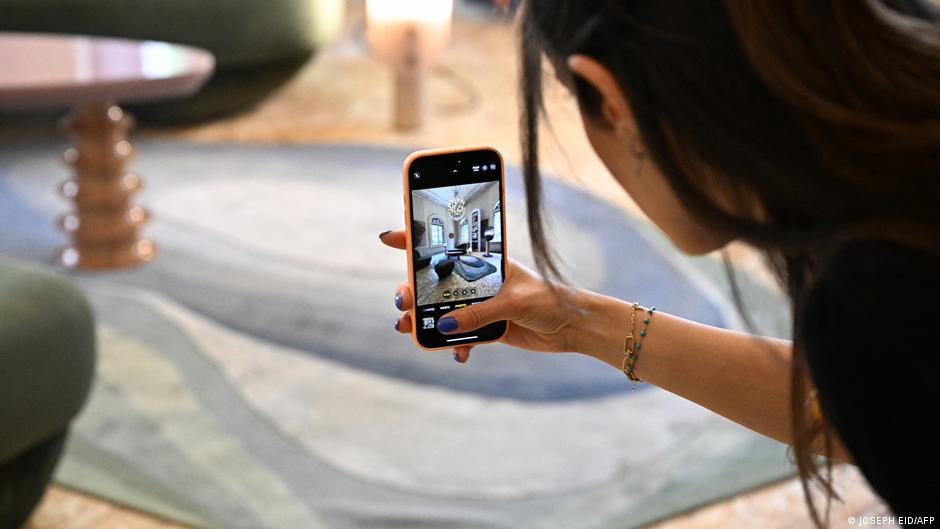
Aiming for financial independence: for Wehbe and her colleagues, it's important that the "We Design Beirut" expo remain financially independent. If it is a success, the expo hopes once again to become an annual event (image: JOSEPH EID / AFP)
https://qantara.de./en/node/44027
Link
To all image galleries
